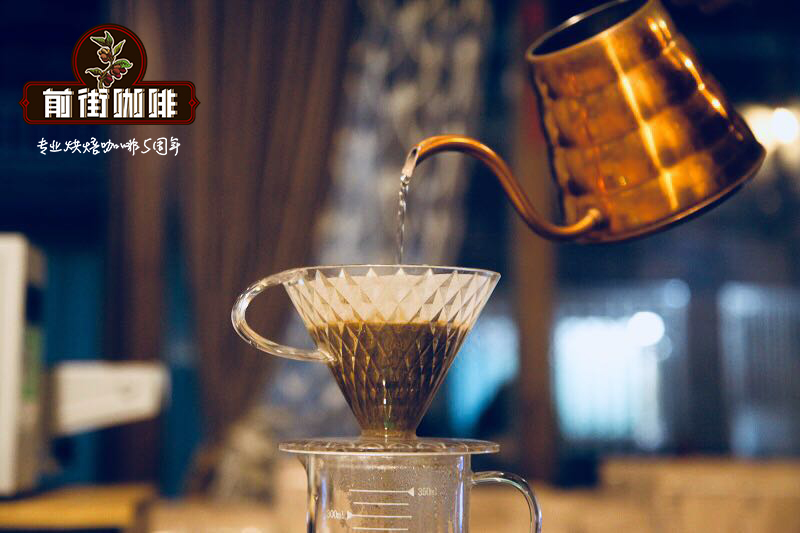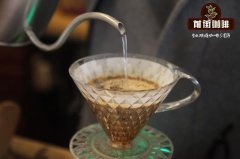Kenyan Coffee Kenya Chechafani Gichathaini Manor

Professional coffee knowledge exchange more coffee bean information please follow the coffee workshop (Wechat official account cafe_style)
Kenya, a giant in the coffee market, is also a model country for producing fine coffee beans. Kenya is located within 5 degrees of north and south latitudes and has many plateaus, which is a prosperous area of agriculture in Africa. Low latitude, high altitude, fertile soil, with a variety of best conditions for growing coffee. The high-altitude Arabica natural washing beans produced in Kenya are the top coffee beans in the world. Most of the coffee beans are graded by the Kenya Coffee Bureau and sold at auction. Kenya Coffee Agency's research, development and quality management of coffee are meticulous. Raise the price of coffee beans through an excellent auction system to help hard-working coffee farmers and through education to update the knowledge of brown farmers to further improve the production of better coffee.
In the 1930s, the Kenyan government commissioned the Scott laboratory to select two varieties suitable for the country, called SL28 and SL32, with distinct blackcurrant, black plum and other berries, which became the "Kenyan flavor" that people would like to talk about in the future.
Kenya, with a BlackBerry fruit flavor, produces very little coffee. These beans come from fine coffee estates founded by foreign coffee companies or acquired by Kenyan coffee companies. These beans are sold to fixed foreign raw beans seldom enter the auction system.
Dorman founded in 1950 has a lot of excellent Kenyan and Tanzanian coffee. African natives with spears and shields is the logo of Dorman and the most prominent pattern on coffee bags. This time, the introduction of Dorman's Gichathaini Manor is a coffee farm that joined the Fair Trade Association (Fair Trade), representing that Chichaffany Manor is a just farm that will not exploit farmers. Gichathaini is the processing plant of the Gikanda Farmers' Cooperative, which handles the coffee beans of more than 800 members nearby. This cooperative steadily produces high-quality coffee beans over the years, and is one of the most profitable cooperatives allocated to its members in Kenya. It has a good reputation and is popular with bean bakers all over the world. By joining the Fair Trade Certification, Gikanda provides members' families with all kinds of necessary social support, including loans for emergency medical care and purchase of farm tools, and even student loans for children. Through the fund allocated by Fairtrade Premium, the cooperative has set up its own pharmacy and further supported the operation of local primary schools and nursing schools.
Cooperatives not only have the natural advantages of Kenya, but also cooperate with Fair Trade Organization to develop many natural production methods here:
Terraced fields: adapt to the terrain, slow down soil erosion, better guide the flow of water, and go down without consuming extra energy.
Storage tank: waste water from the production process, after treatment, will be stored in a storage tank away from clean water sources to avoid direct pollution.
Grow beans: work with coffee trees to provide food and become a natural source of nitrogen fertilizer
Metal drying bed: gradually replace the original wooden drying bed to avoid cutting down more trees; at the same time, the coffee beans are dried by the African sun, without using extra energy.
When coffee beans are delivered to the processing plant, they are transported manually by wheelbarrow, reducing their dependence on gasoline and providing an opportunity for children to earn pocket money.
Important Notice :
前街咖啡 FrontStreet Coffee has moved to new addredd:
FrontStreet Coffee Address: 315,Donghua East Road,GuangZhou
Tel:020 38364473
- Prev

Papua New Guinea Coffee introduction to Baroda Manor, Papua New Guinea
Professional coffee knowledge exchange more coffee bean information Please pay attention to Coffee Workshop (Wechat official account cafe_style) Papua New Guinea is located in the southwest Pacific Ocean, the circum-Pacific volcanic belt, is a volcanic geology, has a fertile soil, is an important natural condition for good coffee. Although it has a good environment, the share of coffee beans in the world is not high, only 0.7%.
- Next

Kenyan coffee Kenya Kenkovini Kagomoini Manor introduction.
Professional coffee knowledge exchange more coffee bean information please follow the coffee workshop (Wechat official account cafe_style) Kenya, the giant in the coffee market is also a model country for producing excellent coffee beans, Kenya produces high-altitude Arabica natural washing beans are the world's top coffee beans, most of the coffee beans are graded by the Kenya Coffee Bureau and then at auction
Related
- Does Rose Summer choose Blue, Green or Red? Detailed explanation of Rose Summer Coffee plots and Classification in Panamanian Jade Manor
- What is the difference between the origin, producing area, processing plant, cooperative and manor of coffee beans?
- How fine does the espresso powder fit? how to grind the espresso?
- Sca coffee roasting degree color card coffee roasting degree 8 roasting color values what do you mean?
- The practice of lattes: how to make lattes at home
- Introduction to Indonesian Fine Coffee beans-- Java Coffee producing area of Indonesian Arabica Coffee
- How much will the flavor of light and medium roasted rose summer be expressed? What baking level is rose summer suitable for?
- Introduction to the characteristics of washing, sun-drying or wet-planing coffee commonly used in Mantenin, Indonesia
- Price characteristics of Arabica Coffee Bean Starbucks introduction to Manning Coffee Bean Taste producing area Variety Manor
- What is the authentic Yega flavor? What are the flavor characteristics of the really excellent Yejasuffi coffee beans?

